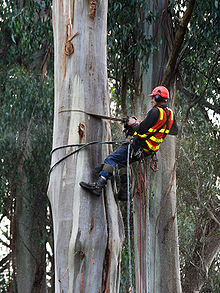the practice and study of the care of trees and other woody plants in the landscape.

Arboriculture (/ˈɑːrbərɪkʌltʃər/) is the cultivation, management, and study of individual trees, shrubs, vines, and other perennial woody plants. The science of arboriculture studies how these plants grow and respond to cultural practices and to their environment. The practice of arboriculture includes cultural techniques such as selection, planting, training, fertilization, pest and pathogen control, pruning, shaping, and removal. The cultivation of trees and shrubs especially for ornamental purpose is called as ARBORICULTURE A person who practices or studies arboriculture can be termed an 'arborist' or an 'arboriculturist'. A 'tree surgeon' is more typically someone who is trained in the physical maintenance and manipulation of trees and therefore more a part of the arboriculture process rather than an arborist. Risk management, legal issues, and aesthetic considerations have come to play prominent roles in the practice of arboriculture. Businesses often need to hire arboriculturists to complete "tree hazard surveys" and generally manage the trees on-site to fulfill occupational safety and health obligations.
Arboriculture is primarily focused on individual woody plants and trees maintained for permanent landscape and amenity purposes, usually in gardens, parks or other populated settings, by arborists, for the enjoyment, protection, and benefit of people.
